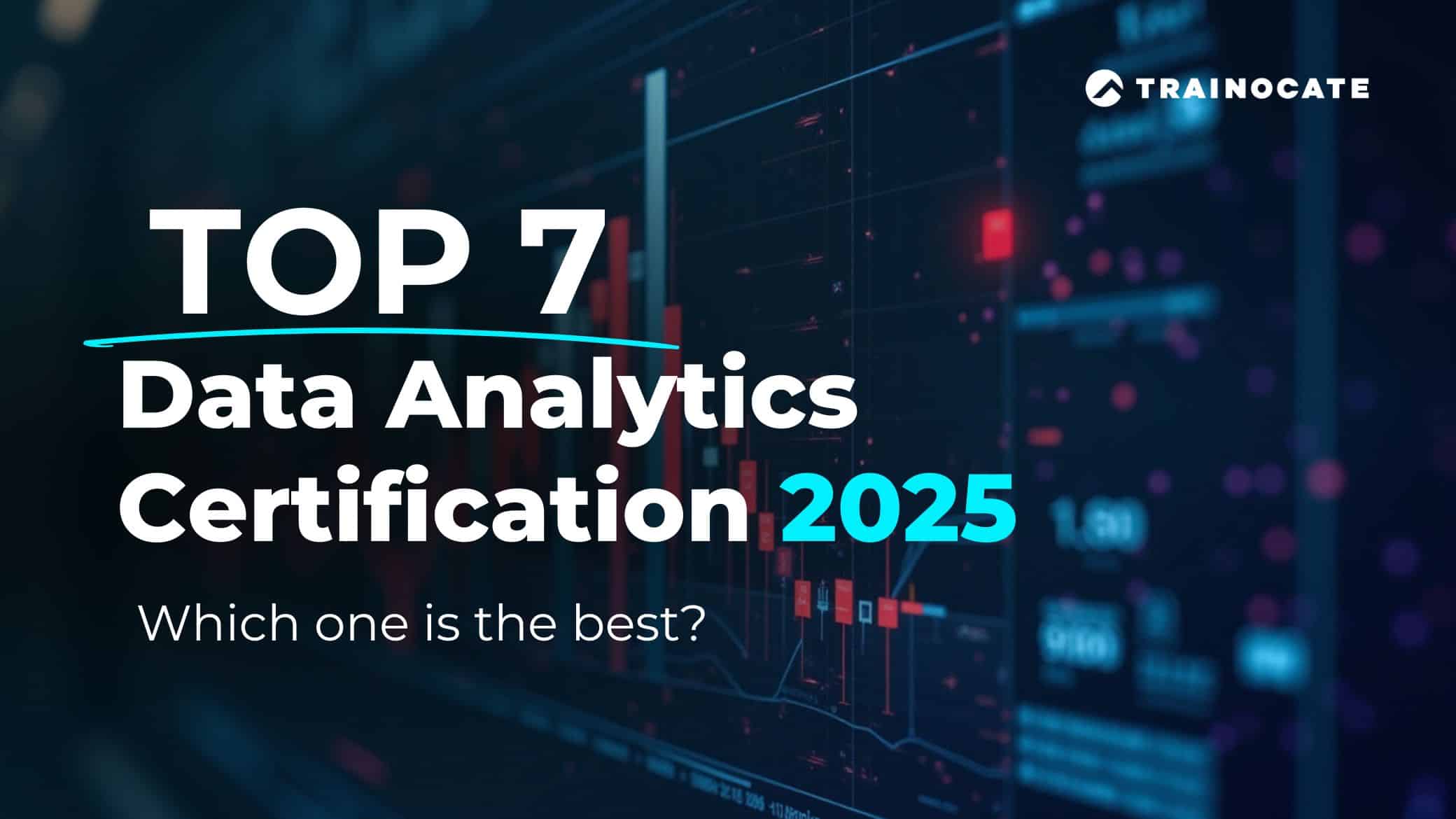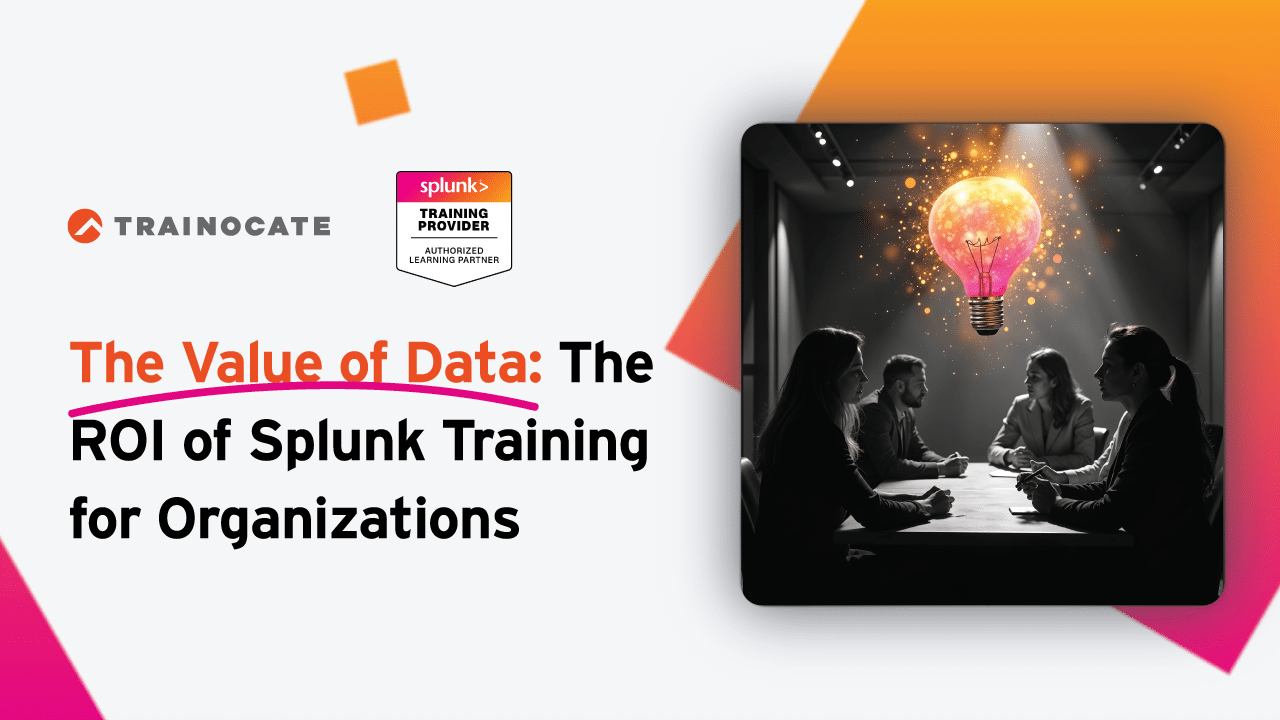Become a Data Analyst with CompTIA Data+
Become a Data Analyst with CompTIA Data+
Data is not just boring numbers
There’s a common misconception that being good with data only involves crunching numbers. While having a knack for numbers is handy, working in data analytics is about more than that. It’s about using numbers to tell a meaningful story.
If you enjoy working with numbers and exploring data sets, but also have a creative side and a curious nature, a career as a data analyst might be a great fit for you.
Here’s your guide to become a data analyst with CompTIA Data+.
What Does a Data Analyst Do?
A data analyst plays a pivotal role within an organization by leveraging data to enhance decision-making and provide valuable insights. Their contributions support decision-making processes in several key ways:
- Gathering, analyzing, and presenting data by creating reports, dashboards, and visualizations related to customers, business operations, or market trends.
- Developing and implementing databases and systems for data collection.
- Sourcing data from primary and secondary sources.
- Scrutinizing and validating data to ensure its accuracy.
- Crafting data models.
- Introducing innovative data analytics techniques.
Data analysts often specialize in specific industries such as finance, healthcare, e-commerce, or marketing, although data holds significance across all sectors today.
Typically, they collaborate with IT teams, management, and data scientists to align their efforts with the organization’s overarching objectives. Their role involves collecting, analyzing, and transforming the abundance of data an organization accumulates into formats that are easily understood by stakeholders.
In various industries, data analysts may assume different job titles, including marketing analyst, business analyst, or consumer data engineer.
Who Can Benefit from Data Analytics Skills?
Data analytics skills find applications in various job roles and industries. Here are some common job titles where these skills are valuable:
- Data Analyst: Data analysts are responsible for collecting, interpreting, and analyzing data, presenting their findings to key stakeholders within the organization.
- Data Scientist: Data scientists utilize algorithms and scientific methods to extract valuable insights and information from data, aiding in informed decision-making.
- Reporting Analyst: After data collection and analysis, reporting analysts prepare reports and offer recommendations for process improvement based on their findings.
- Business Data Analyst: Focused on operational data, business data analysts often serve as a bridge between the technical and business aspects of an organization.
- Business Intelligence Analyst: This role involves gathering both internal and external data and comparing them to provide a comprehensive view of the marketplace, assisting the organization in making informed decisions.
Beyond individuals in data-specific roles, there are several other career paths that can benefit from an understanding of analytics processes and data analytics knowledge.
Professionals in fields such as marketing, finance, human resources, and clinical healthcare analysis can enhance their performance and decision-making by effectively utilizing and evaluating data.
4 Important Reasons to Learn Data Analytics
- Spotting Patterns and Trends: Learning data analytics helps you recognize trends in your industry and within your organization. This knowledge empowers you to make informed decisions and plan for success.
- Understanding Data Collection: Data is collected in various ways depending on the industry and organization. Learning data analytics helps you understand how data is gathered, enabling you to work effectively in your specific context.
- Supporting Organizational Goals: Through performance analysis, you can track important metrics in relation to your organization’s objectives. This data-driven approach allows you to propose strategies and recommendations to help your organization achieve its goals.
- Securing Your Career: The demand for data analysis skills is growing, and there is a shortage of professionals with these skills across different job roles. In fact, only 44% of companies have dedicated IT employees for data management or analysis. Learning data analytics not only enhances your current career but also ensures your relevance in a changing job market.
Becoming a Data Analyst
When it comes to securing a role as a data analyst, most companies seek candidates with a bachelor’s degree in fields like statistics, mathematics, economics, or data science. While data analyst positions are often considered entry-level, many professionals transition into this career from related fields such as business or economics. They typically achieve this by enhancing their skills mid-career through additional learning and certifications, such as the CompTIA Data+ certification.
CompTIA Data+ is a popular certification designed for early-career data analytics professionals, aimed at empowering them to drive data-centric decision-making within businesses.
This fresh certification in data analytics equips individuals with the essential skills needed to facilitate data-driven decision-making in the corporate world, including:
- Data mining.
- Data manipulation.
- Data visualization and reporting.
- Application of fundamental statistical techniques.
- Proficiency in analyzing intricate datasets, while ensuring compliance with governance and quality standards across the entire data life cycle.
Data analysts often specialize in specific industries such as finance, healthcare, e-commerce, or marketing, although data holds significance across all sectors today.
Typically, they collaborate with IT teams, management, and data scientists to align their efforts with the organization’s overarching objectives. Their role involves collecting, analyzing, and transforming the abundance of data an organization accumulates into formats that are easily understood by stakeholders.
To guide you better, we’ve prepared a detailed step-by-step guide on how to become a data analyst. Feel free to take a look!
Data Analyst Salaries in Malaysia
As per data from Payscale for the year 2023, the average annual salary for a Data Analyst in Malaysia is RM 46,478.
Nevertheless, it’s crucial to recognize that various factors play a pivotal role in determining these salaries, with experience level being a significant influencer.
- For those just starting in the field with less than 1 year of experience, the average total compensation, including tips, bonuses, and overtime pay, stands at RM 40,326, based on data from 39 individuals in similar roles.
- For early career Data Analysts with 1-4 years of experience, the average total compensation is RM 45,284, as reported by 222 individuals.
- Mid-career Data Analysts with 5-9 years of experience earn an average total compensation of RM 62,848, with this figure derived from 40 individuals.
- Experienced Data Analysts with 10-19 years of experience can expect to earn an average total compensation of RM 94,315, based on data from 15 individuals.
Data Analyst Job Opportunities
According to CompTIA, the demand for data analysts is steadily increasing and is projected to keep rising. By 2033, there are expected to be around 485,400 job openings in this field, which represents a significant growth rate of 61% compared to the national average over the next decade.
Additionally, the global data analytics market showed substantial growth, with a market size of USD 30 billion in 2022. Predictions suggest that this growth trend will continue, with estimates indicating it could reach USD 393.35 billion by 2032, equating to an impressive annual growth rate of 29.4%. This makes it an opportune time to consider a career in data analysis, especially with certification!








